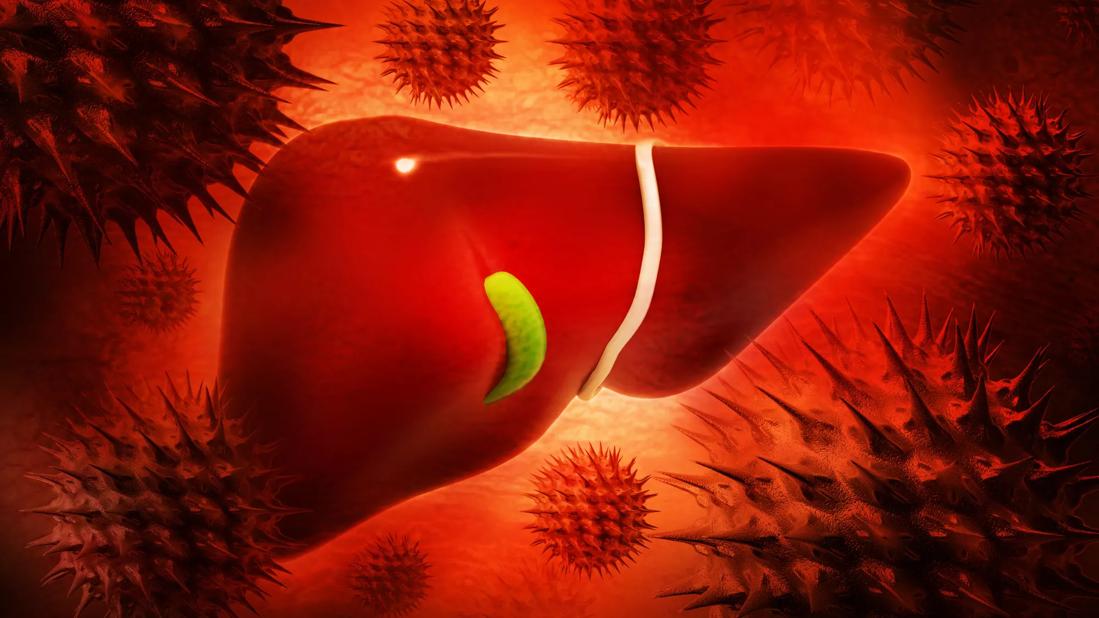Effective HCV treatments enable transplantation of HCV-positive organs to HCV-negative patients

Donated organs for transplantation are always in short supply: As of July 2017, 116,830 U.S. patients were awaiting solid organ transplantation: 98,856 needing kidneys and 14,176 livers. However, only 17,157 transplants were performed last year. “The big issue is that people die while waiting for an available organ,” says K.V. Narayanan Menon, MD, Medical Director of Liver Transplantation.
Advertisement
Cleveland Clinic is a non-profit academic medical center. Advertising on our site helps support our mission. We do not endorse non-Cleveland Clinic products or services. Policy
Fortunately, one new source of organs has become available: hepatitis C (HCV) infected organs. The number of these organs has increased in recent years, most likely due to the opioid epidemic. Since 2013, multiple direct-acting antiviral agents (DAAs), which are associated with high HCV cure rates and minimal side effect profiles, have been approved by the Food and Drug Administration (FDA). As a result, HCV-infected organs have been increasingly used in transplants.
Cleveland Clinic began by treating all historical transplant patients who had HCV with DAAs; the drugs cured the virus with no negative interactions with anti-rejection medications. “DAAs have revolutionized our perspective on the hepatitis C virus: It was once difficult to manage and control and now it is easily treated,” says Bobby Zervos, DO, Medical Director of Liver Transplantation at Cleveland Clinic Florida.
Next, HCV-positive kidney transplant candidates were treated with DAAs before transplantation to clear the virus, due to concern over HCV possibly causing kidney dysfunction. Again, the drugs were effective and eventually led to a change in practice by transplanting HCV-infected organs into HCV-positive recipients. Outcomes were once again beneficial with no drug interactions with immunosuppressive regimens.
In January, Cleveland Clinic began offering HCV-negative transplant candidates the option of HCV-infected organs after spending a year developing their carefully outlined protocol. Overall, the response has been positive, reports Dr. Menon, with some patients understandably cautious, given the negative media coverage of HCV. “Hepatitis C organ transplantation is especially useful in patients who are symptomatic with liver disease but don’t have a score for immediate transplant,” says Dr. Menon.
Advertisement
To date, 44 HCV transplants, which include liver, kidney and heart, have been performed at Cleveland Clinic facilities nationwide. “We have a safe and innovative way to provide access to a limited resource and expand the donor pool and provide quality outcomes for our transplant patients,” says Dr. Zervos.
When the HCV virus is detected in patients’ blood, which often is detected within three days post-transplant, DAA treatment is started as soon as feasible and continues for 12 to 16 weeks. Patients who have past exposure to Hepatitis B infection are monitored for reactivation during therapy.
While DAA cure rates are 98 percent or better, HCV transplantation is not without risks. The consideration of HCV positive organs to negative recipients must carefully be reviewed case by case to ensure that the patients transplant benefit to virus exposure outweigh the risks. These risks vary organ to organ and thus a multi-disciplinary approach in protocol development was thoroughly vetted with all Cleveland Clinic organ transplant specialists involved.
So far, all Cleveland Clinic HCV transplant patients have responded well to DAA treatment with no adverse interactions with transplant medications. Positive outcomes have also been reported in studies of HCV transplantation: In a University of Pennsylvania single-group, pilot trial of 10 HCV-negative patients who received HCV-infected kidneys, all developed HCV and were cured after 12 weeks of DAA treatment. Also, in a Johns Hopkins School of Medicine nonrandomized trial of 10 HCV-negative patients who received HCV-infected kidneys, DAAs were administered immediately before and for 12 weeks following transplantation. Again, all patients had positive outcomes.
Advertisement
“Now that we have effective HCV treatments, it’s likely that HCV transplantation will become as routine as transplantation with organs from previously exposed hepatitis B virus or cytomegalovirus (CMV),” says Dr. Menon.
Advertisement
Advertisement

Benefits of neoadjuvant immunotherapy reflect emerging standard of care

Multidisciplinary framework ensures safe weight loss, prevents sarcopenia and enhances adherence

Study reveals key differences between antibiotics, but treatment decisions should still consider patient factors

Key points highlight the critical role of surveillance, as well as opportunities for further advancement in genetic counseling

Potentially cost-effective addition to standard GERD management in post-transplant patients

Findings could help clinicians make more informed decisions about medication recommendations

Insights from Dr. de Buck on his background, colorectal surgery and the future of IBD care

Retrospective analysis looks at data from more than 5000 patients across 40 years